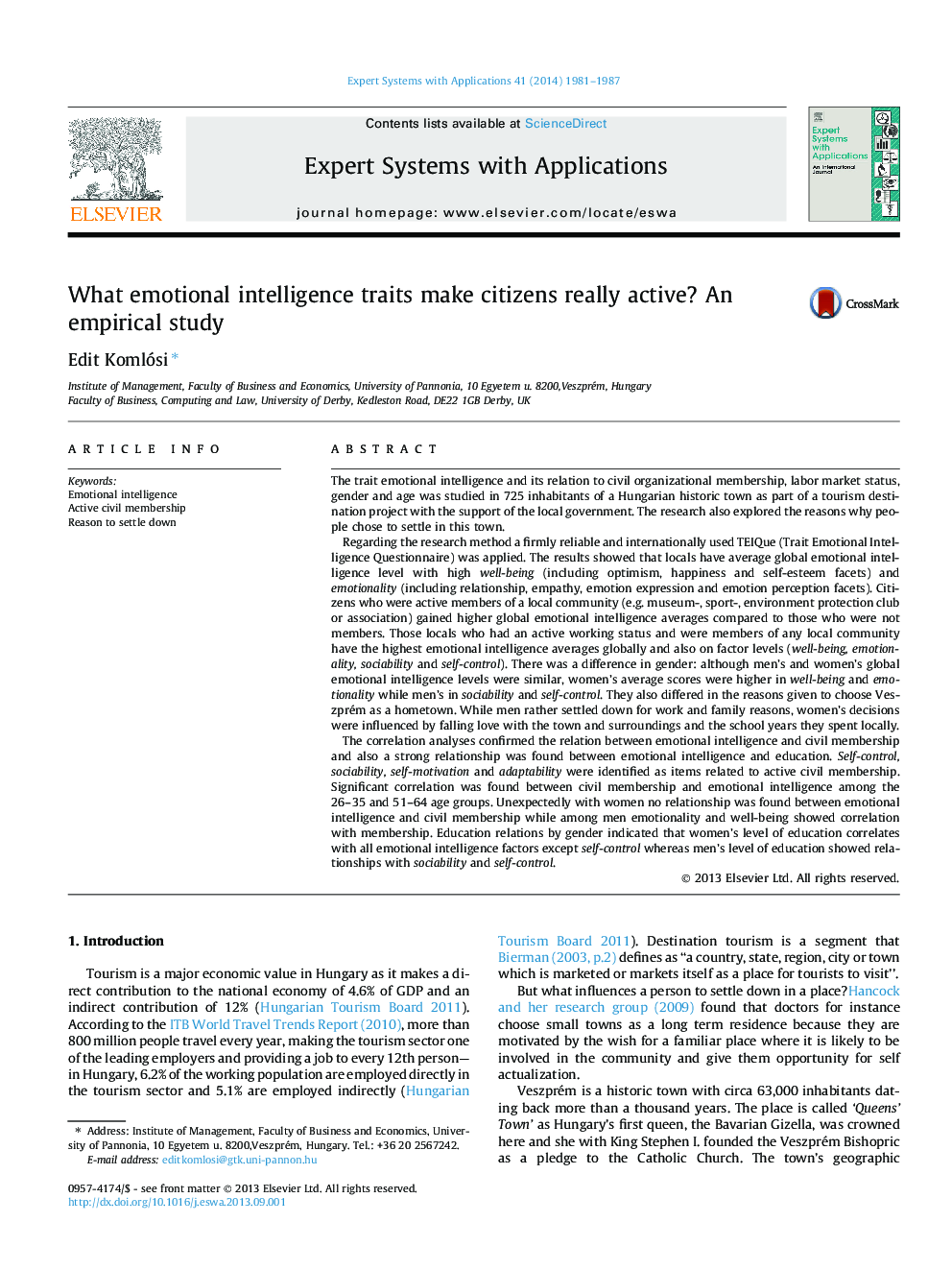| Article ID | Journal | Published Year | Pages | File Type |
|---|---|---|---|---|
| 382520 | Expert Systems with Applications | 1987 | 7 Pages |
•Significant correlation is found between civil membership and global emotional intelligence.•There is a positive relation between emotional intelligence and level of education.•Gender differences has been identified regarding relationship between emotional intelligence and length of stay in the town, education, civil membership and age.
The trait emotional intelligence and its relation to civil organizational membership, labor market status, gender and age was studied in 725 inhabitants of a Hungarian historic town as part of a tourism destination project with the support of the local government. The research also explored the reasons why people chose to settle in this town.Regarding the research method a firmly reliable and internationally used TEIQue (Trait Emotional Intelligence Questionnaire) was applied. The results showed that locals have average global emotional intelligence level with high well-being (including optimism, happiness and self-esteem facets) and emotionality (including relationship, empathy, emotion expression and emotion perception facets). Citizens who were active members of a local community (e.g. museum-, sport-, environment protection club or association) gained higher global emotional intelligence averages compared to those who were not members. Those locals who had an active working status and were members of any local community have the highest emotional intelligence averages globally and also on factor levels (well-being, emotionality, sociability and self-control). There was a difference in gender: although men’s and women’s global emotional intelligence levels were similar, women’s average scores were higher in well-being and emotionality while men’s in sociability and self-control. They also differed in the reasons given to choose Veszprém as a hometown. While men rather settled down for work and family reasons, women’s decisions were influenced by falling love with the town and surroundings and the school years they spent locally.The correlation analyses confirmed the relation between emotional intelligence and civil membership and also a strong relationship was found between emotional intelligence and education. Self-control, sociability, self-motivation and adaptability were identified as items related to active civil membership. Significant correlation was found between civil membership and emotional intelligence among the 26–35 and 51–64 age groups. Unexpectedly with women no relationship was found between emotional intelligence and civil membership while among men emotionality and well-being showed correlation with membership. Education relations by gender indicated that women’s level of education correlates with all emotional intelligence factors except self-control whereas men’s level of education showed relationships with sociability and self-control.
